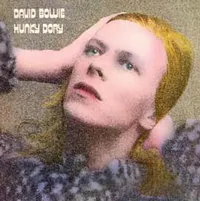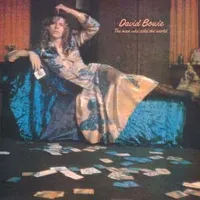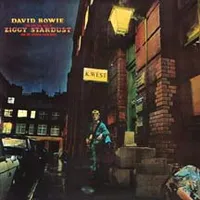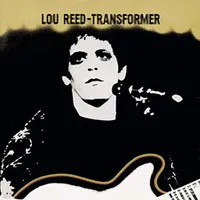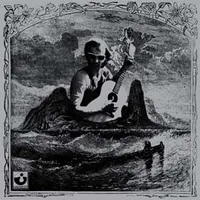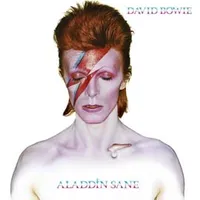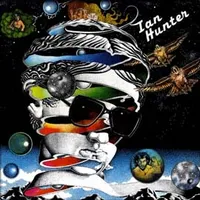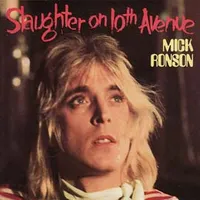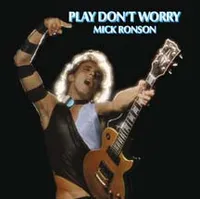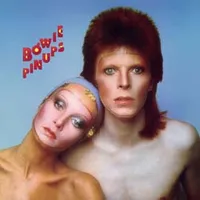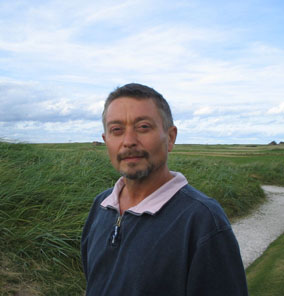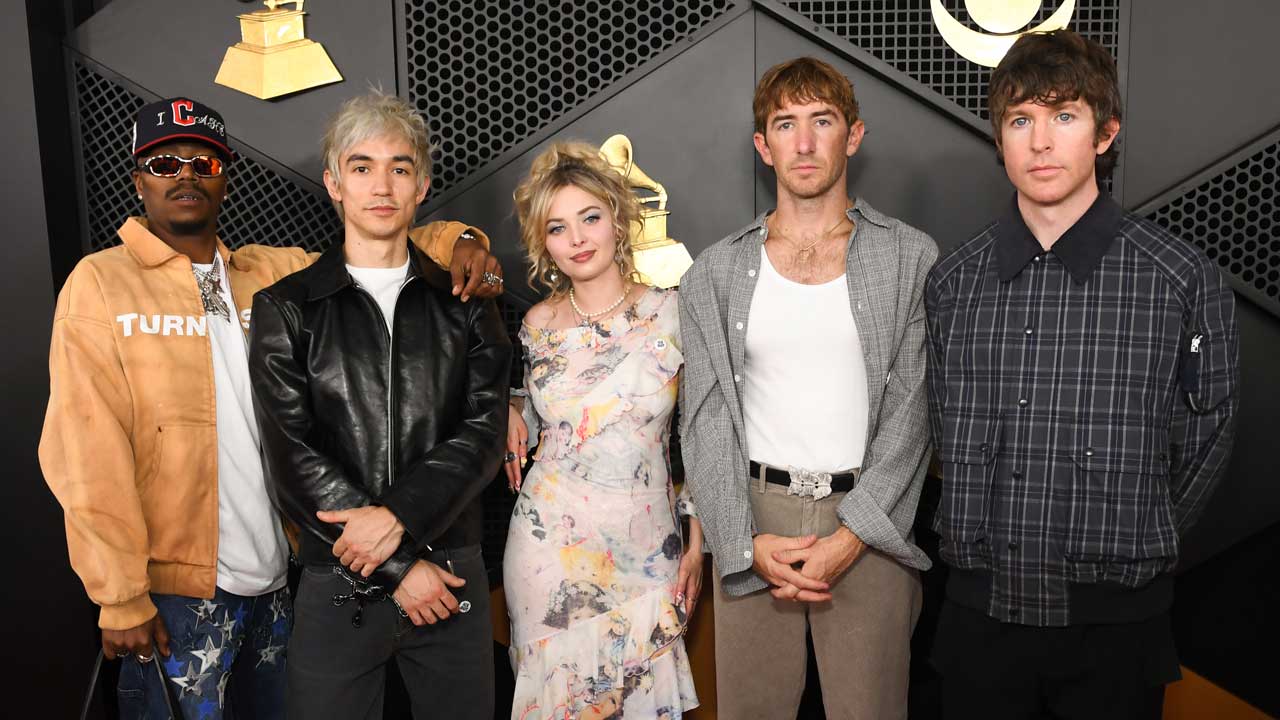The Mick Ronson albums you should definitely own
Guitarist Mick Ronson made David Bowie famous, was the sound of glam rock, played with Bob Dylan and revitalised the career of Lou Reed - and these are his best albums
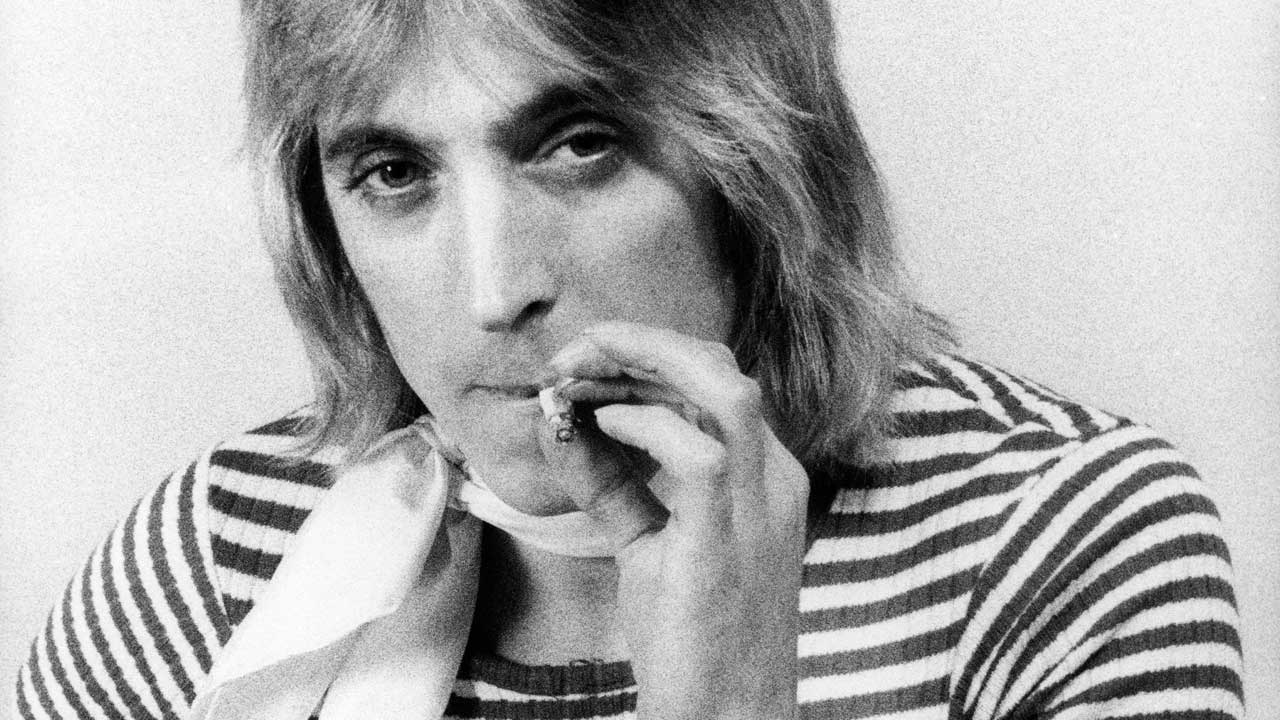
Although he had only two solo albums released in his lifetime (Slaughter On 10th Avenue and Play Don’t Worry), Mick Ronson enjoyed a period as one of Britain’s greatest guitarists, thanks to groundbreaking performances with David Bowie before, during and after The Dame’s rise to fame. The fulcrum on Ziggy Stardust And The Spiders From Mars, Ronson’s skills – player, arranger, musical director – made him indispensable, until Bowie changed tactics for Diamond Dogs.
Never at ease in promoting his solo albums, Ronno preferred a collaborative role, one he’d perfected in his most significant home town (Hull) band, The Rats. His first major project was also local: his contribution to Michael Chapman’s second album, 1970’s Fully Qualified Surveyor. Chapman said: “That bugger’s the best guitarist around.”
This was the point when Bowie and his then-producer Tony Visconti first came across the skinny, reticent Ronson. Many have noticed certain similarities between the Chapman recording and Bowie’s Hunky Dory, the album signalling the mutation of hippie bohemia into emerging glam rock.
Ronson’s involvement in Lou Reed’s Transformer showcased his string arranging and sharp guitar vision, and helped rescue a bunch of material lying around in half-finished form. His later work with Ian Hunter was fruitful, although the Bowie-mania days were never replaced. He also did sterling work with other side projects, including the Pure Prairie League and Bob Dylan’s Rolling Thunder Revue.
“I’d follow him [Bob] anywhere,” Ronson vowed. “That whole tour was this huge adventure. There was Joan Baez, [Roger] McGuinn, Allen Ginsberg. There was Dylan. And there I was too. For a lad from Yorkshire it was truly out of this world.”
After that, Ronno’s career was punctuated with hits, but not many. For every John Cougar there was a David Cassidy. A latter-day Bowie reunion and vital assists to Morrissey’s Your Arsenal coincided with the knowledge that he had inoperable liver cancer, but he worked up until his death in April 1993, aged just 46. Morrissey’s guitarist Boz Boorer recalled: “I can see him in front of a deafening Marshall head, dialling in a sound he could hear, a master at work.”

Davis Bowie - Hunky Dory (RCA, 1971)
Recording began after Bowie and Ronson’s Glastonbury performance, with the future Ziggy components in place. This was the only time Ronno received arrangement credits. While Hunky Dory flopped at the time, it is regarded as the band’s best-loved album.
Tracks like Quicksand and The Bewlay Brothers signal the time when hippie mysticism gave way to nascent glam rock on Queen Bitch and Changes. Nods to John Lennon, Warhol and the Velvet Underground were ambitious calling cards, with Ronson’s acoustic and electric playing carrying the conceits off and ensuring that Life On Mars? achieved classic status.
David Bowie - The Man Who Sold The World (Mercury, 1970)
This is the one with the metal. The Eastern drone and Latin rhythms of the title track, the show-stopping R&B of The Width Of A Circle and the distorted, depressive All The Madmen were unlike anything else in British rock. Meanwhile, The Supermen, based on a riff Jimmy Page gifted the singer, was the perfect vehicle to let Ronson off the leash.
Bowie provided the psych references to Nietzsche, HP Lovecraft and Aleister Crowley, and Ronson (and Tony Visconti) arranged to perfection. Even throwaway Black Country Rock is an object lesson in precision.
David Bowie - The Rise And Fall Of Ziggy Stardust And The Spiders From Mars (RCA, 1972)
June 16, 1972 marks the game changer for Bowie and his band. Ronson’s uncredited string arrangements often go unnoticed here because of the grandiose sweep of the songs, but his parts for Five Years and Moonage Daydream and the synth on Suffragette City underscored the lyrics, and his harmony vocals were integral.
Producer Ken Scott marvelled at Ronno’s ability to make a brief dash to the toilet to write a chart and then tutor the unnamed quartet while Bowie looked on in silent admiration at “my Jeff Beck”.
Lou Reed - Transformer (RCA, 1972)
Ronson did the bulk of the production and all the vital arrangements on the album that popularised Lou Reed and made him a star. His string and piano parts for Perfect Day, the recorder on Satellite Of Love, that riff on Vicious and the iconic orchestration and vocal parts on Walk On The Wild Side should have ensured Ronno became wealthy, but as usual he received pay scale, while others reaped the rewards and the kudos.
Later on, Reed credited the ‘Glammer Twins’ for boosting his career and emphasised the fact that Ronson’s hand was the major one.
Michael Chapman - Fully Qualified Survivor (Harvest, 1970)
A key breakthrough for Ronno, who studied Chapman’s string arranger Paul Buckmaster and producer Gus Dudgeon while lending his licks to the funky Soulful Lady and the sweeping chord changes of Stranger In The Room.
In his element feeding off the strings on Postcards From Scarborough or underpinning the gentle Rabbit Hills, he also picked up tips on mood and nuance from bassist Rick Kemp, who had escorted him to the sessions. The dynamics on this album can be heard in Hunky Dory, the experience clearly having inspired Ronno.
David Bowie - Aladdin Sane (RCA, 1973)
Up and running, Ronson provided the Stonesy riffs to Watch That Man and the flaming solo on Time. The hit single The Jean Genie, based on The Yardbirds I’m A Man, was worked over by Bowie and Ronson at the back of the bus during the Spiders’ US tour and became the band’s biggest hit to date, followed by the prototype Bowie-does-soul track Drive-in Saturday.
That single’s B-side, a cover of Chuck Berry’s Around And Around, depicts the guitarist at his most playful. Most people just busk the solo on covers of old rock numbers, but Ronson took it seriously.
Ian Hunter - Ian Hunter (CBS 1975)
A long and lasting friendship between Hunter and Ronson began when Ronno scribbled a strings-and-brass arrangement on the back of a fag packet for Mott The Hoople’s Sea Diver and tutored the band through their version of All The Young Dudes.
Hunter’s debut kicks off with Ronson’s solo on Once Bitten, Twice Shy, and Ronno gets a credit for Boy and adds guitars, organ, Mellotron, bass and harmonica elsewhere. Ronno’s production expertise lends this album its enduring quality, and his partnership with Hunter was replicated on You’re Never Alone With A Schizophrenic.
Mick Ronson - Slaughter On 10th Avenue (RCA, 1974)
His tenure with Bowie almost up, Ronson was pushed to the forefront by the MainMan organisation. He made a credible solo debut, but cast his net too wide, taking in everything from Elvis (Love Me Tender) to Italian pop (Music Is Lethal) and the Richard Rodgers ballet piece that Bowie suggested as the title track.
In terms of virtuoso playing – Ronson’s version of Annette Peacock’s I’m The One being the charm – it’s business as usual, although for once he would have been better off with an outside producer, since too much on the album gets lost in translation.
Mick Ronson - Play Don’t Worry (RCA, 1975)
Ronson’s second solo album suffers the same fate as its predecessor, as it’s piecemeal again. The highlights – Billy Porter, a revisited Stone Love (Soul Love) on the CD edition and a crisp take on Pure Prairie League’s Angel No. 9 are fine enough, but The Girl Can’t Help It and a warmed-up White Light/White Heat are surplus to requirements.
The musicians include Trevor Bolder and Mike Garson so it sounds authentic, without quite convincing that Ronson believes he should be fronting the venture. RCA agreed and released him from his contract. Luckily, Dylan was just around the corner.
And one to avoid...
You can trust Louder
David Bowie - Pin Ups (RCA, 1973)
Great in theory, Pin Ups always sounded like contract filler, a mannered distraction at best. Bowie’s decision to revisit old mod-era fave raves was water off the proverbial for Ronson, who maps out the better songs – Rosalyn, I Wish You Would and Where Have All The Good Times Gone – without suggesting that either he or anyone else involved will usurp the originals.
Additionally, the production is weak and tinny, so despite the good taste on show the results are clunky. This is an album damned with faint praise. You’re hardly in an amphetamine rush to slap it on the turntable.
Sign up below to get the latest from Classic Rock, plus exclusive special offers, direct to your inbox!
Max Bell worked for the NME during the golden 70s era before running up and down London’s Fleet Street for The Times and all the other hot-metal dailies. A long stint at the Standard and mags like The Face and GQ kept him honest. Later, Record Collector and Classic Rock called.
